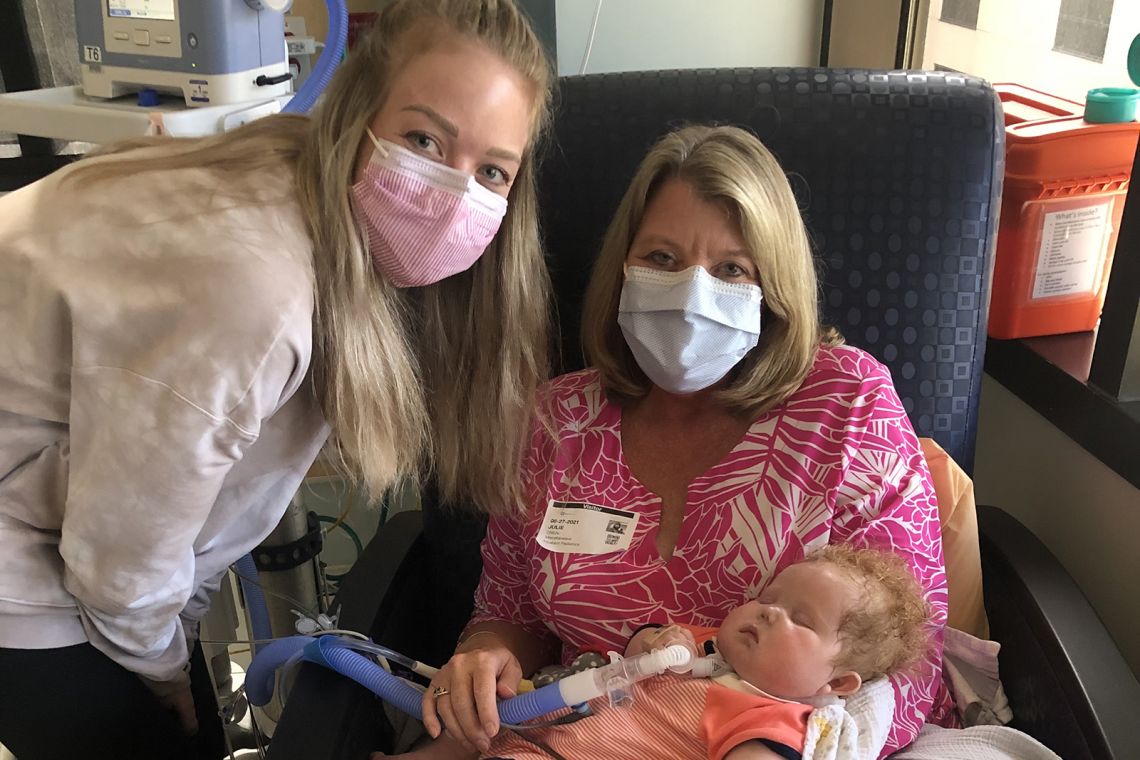
A baby believed to be the first person to receive a combination heart transplant and allogeneic processed thymus tissue implantation appears to be gaining the immune cells necessary to reduce or eliminate the need for prolonged use of toxic anti-rejection drugs.
The two procedures -- performed at Duke University Hospital last summer under an expanded access application that was cleared by the FDA -- represent a milestone in heart transplantation.
“This has the potential to change the face of solid organ transplantation in the future,” said Joseph W. Turek, M.D., Ph.D., Duke’s chief of pediatric cardiac surgery and a member of the surgical team that performed the landmark procedure.
“If this approach proves successful – and further validation is contemplated – it would mean transplant recipients would not reject the donated organ and they would also not need to undergo treatment with long-term immune-suppression medications, which can be highly toxic, particularly to the kidneys,” Turek said. “This concept of tolerance has always been the holy grail in transplantation, and we are now on the doorstep.”
Currently, transplanted hearts have an average lifespan of about 10 to 15 years. With durability limited by the toxicity of immune-suppression drugs, other options have long been sought.
The idea of using donated and processed thymus tissue during heart transplantation has been under study at Duke and other sites for several years. Because the thymus gland stimulates the development of T-cells, which fight foreign substances in the body, implanting the processed tissue is hoped to establish the donor’s immune system as the recipient’s, so the donated heart is recognized as “self.”
The approach has shown promise in animal experiments, including in Turek’s lab at Duke, but it had previously not been tried in a living organ recipient.
Duke researchers received permission from the FDA for the investigational procedures after two important factors lined up serendipitously – the youngster, Easton Sinnamon, needed both a heart transplant and processed thymus tissue implantation independent of one another, and he was a patient at Duke, where the processed thymus tissue implantation is solely available.
The processed thymus tissue implantation method, pioneered at Duke by Louise Markert, M.D., uses a proprietary technique to culture and administer processed thymus tissue; the process has been licensed to Enzyvant Therapeutics GmbH. The company received FDA approval last fall for allogeneic processed thymus tissue-agdc, indicated for immune reconstitution in pediatric patients with congenital athymia, a rare condition in which children are born without a thymus. Enzyvant provided financial support for processing of the thymus tissue that was used in this research.
“We see tremendous promise in this technology for patients and we are working with urgency to advance research and development for all children in need of cardiac transplants,” said Rachelle Jacques, chief executive officer of Enzyvant.
For Easton, the first-in-human combination of procedures appears to be working.
 Tests taken 172 days post-transplant/implantation indicate the processed thymus tissue is functioning, building the critical T-cells that are integral to a well-functioning immune system. Easton’s care team at Duke continues to monitor progress; another milestone is possible in several months when he could be tapered off anti-rejection drugs.
Tests taken 172 days post-transplant/implantation indicate the processed thymus tissue is functioning, building the critical T-cells that are integral to a well-functioning immune system. Easton’s care team at Duke continues to monitor progress; another milestone is possible in several months when he could be tapered off anti-rejection drugs.
“Cases like this underscore how important new insights emerge when surgery and science are expertly practiced together,” said Allan D. Kirk, M.D., Ph.D., chair of the Department of Surgery at Duke University School of Medicine. “This case has implications for more than just heart transplantation – it could change the way that many solid organ transplants are done in the future.
“The team performed the transplant and implant in a patient who lacked significant thymus function, providing an excellent opportunity to examine how allogeneic processed thymus tissue can shape a person’s immune system to be more receptive to a donor organ,” Kirk said. “If this can be extrapolated to patients who already have a functioning thymus, it could potentially allow them to restructure their immune systems to accept transplanted organs with substantially less dependence on anti-rejection medication. The processing method used for the thymus tissue seems to be critical and is of great interest.”
Born with severe heart defects as well as thymic deficiency from an unknown cause, which severely impaired his immune system, Easton received his transplant on Aug. 6, 2021, when he was 6 months old, followed two weeks later with the implantation of the cultured thymus tissue from his heart donor.
Easton recently celebrated his first birthday and continues to do well.
“It was one of those things where it could help him, and if it works, it not only helps him, but it could help thousands of other people as well with their children who need transplants,” said Easton’s mom, Kaitlyn. “When we talked about it, it was like ‘Why would we not do it when we can make a difference for all these other people?’”